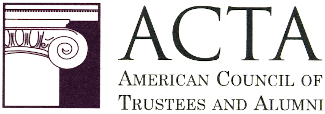- Home
-
About
 Fidelity & Excellence
Fidelity & ExcellenceThomas Aquinas College is unique among American colleges and universities, offering a faithfully Catholic education comprised entirely of the Great Books and classroom discussions.
-
A Liberating Education
 Truth Matters
Truth MattersTruth, and nothing less, sets men free; and because truth is both natural and supernatural, the College’s curriculum aims at both natural and divine wisdom.
-
A Catholic Life
 Under the Light of Faith
Under the Light of FaithThe intellectual tradition and moral teachings of the Catholic Church infuse the whole life of Thomas Aquinas College, illuminating the curriculum and the community alike.
-
Admission & Aid
 Is TAC Right for You?
Is TAC Right for You?Do you enjoy grappling with complex questions? Are you willing to engage in discussions about difficult concepts, with the truth as your ultimate goal?
-
Students & Parents
 Mind, Body & Spirit
Mind, Body & SpiritThere is always something to do at TAC — something worthwhile, something fulfilling, and something geared toward ever-greater spiritual and intellectual growth.
-
Alumni & Careers
 What Can You Do with a Liberal Education?
What Can You Do with a Liberal Education?Nothing speaks more to the versatility of the College’s academic program than the good that our alumni are doing throughout the Church and the world.
- Search
- Giving
ACTA Gives TAC an “A” Rating, Perfect Score for Academics in 2020-21 Report
 The American Council of College Trustees and Alumni (ACTA) has released its annual report (PDF) on the curricular strength of American institutions of higher learning and, once again, Thomas Aquinas College is at the very top of the list.
The American Council of College Trustees and Alumni (ACTA) has released its annual report (PDF) on the curricular strength of American institutions of higher learning and, once again, Thomas Aquinas College is at the very top of the list.
“The country needs civic education now, more than ever, yet only 18 percent of schools require a course in U.S. government or history, less than 32 percent require a course in literature, and a paltry 3 percent require a course in economics,” says Nathaniel Urban, ACTA’s associate director of curricular improvement. “Thomas Aquinas College, however, is one of the 23 ‘A’ schools … that remain committed to a rigorous core curriculum rooted in the liberal arts and Western tradition.”
On its What Will They Learn? website, ACTA posts evaluations of the major public and private colleges and universities in all 50 states — over 1,100 four-year institutions, with more than 8 million undergraduate students among them. For the twelfth time in as many years, ACTA has given Thomas Aquinas College a perfect rating.
By earning an “A,” Thomas Aquinas College rates among the top 2 percent of American colleges and universities, 22 schools in all, named to ACTA’s coveted A List. Moreover, the College is one of only six schools, or the top 0.5 percent nationwide, to earn a perfect score for the strength of its curriculum.
“The pandemic is upending higher education and forcing families to pay more attention to the value proposition of a collegiate education,” says ACTA President Michael Poliakoff. “Students must be educated to think critically and be prepared to navigate an uncertain career path. The schools that score well in ‘What Will They Learn?’ graduate expert learners who are prepared for their first job and ready to confront the new challenges they will face in their fifth or tenth position. The ever-adaptable skill set provided by a liberal education equips graduates to thrive in a multitude of different fields and roles.”
While numerous guides rank colleges and universities based on popularity or reputation, ACTA’s annual rating evaluates schools solely on the basis of their curricula. It focuses on the substance of schools’ mandatory courses and texts, or core curricula, identifying seven essential areas of study for undergraduates: composition, literature, U.S. government or history, foreign language (at an intermediate level), mathematics, natural science, and economics. The more of these areas of study required by a college or university, and the more substantive the curricula in these areas, the higher the school’s overall ACTA rating.
“Thomas Aquinas College offers a rigorous and carefully designed four-year program of studies. Every student goes through the same integrated program that includes four years of philosophy, four years of theology, four years of mathematics, four years of natural science, four years of seminar — literature, history, and political science — two years of Latin, and one year of music,” says Dean John J. Goyette. “This hearkens back to a tradition of learning that has been abandoned by the modern universities, an integrated curriculum designed to provide a well-rounded education.”
The versatility of this program is evident in the College’s alumni, who go on to excel in a wide variety of professions, from law and medicine to journalism, public policy, technology, architecture, and military service. “The rigorous study of the Great Books, and our use of the Discussion Method, not only elevates the minds and hearts of our students to the most important things, it also perfects their powers of reason,” says Dr. Goyette. “It helps them develop the ability to read carefully, think critically, articulate a thesis, and learn from their peers. It thus provides them with the skills necessary for success in any discipline or profession.”

